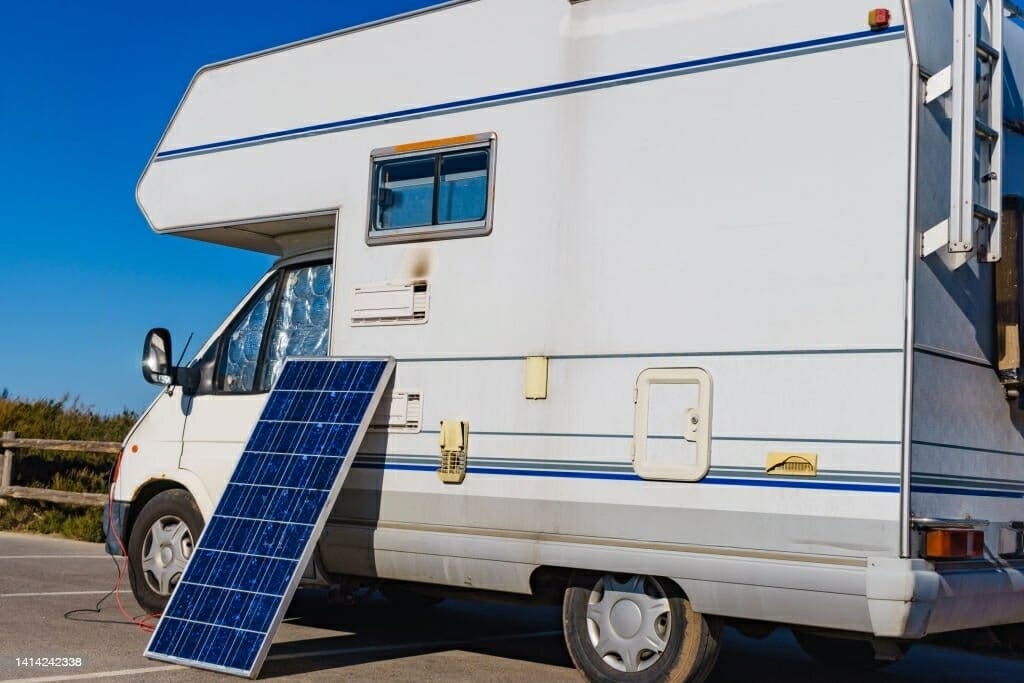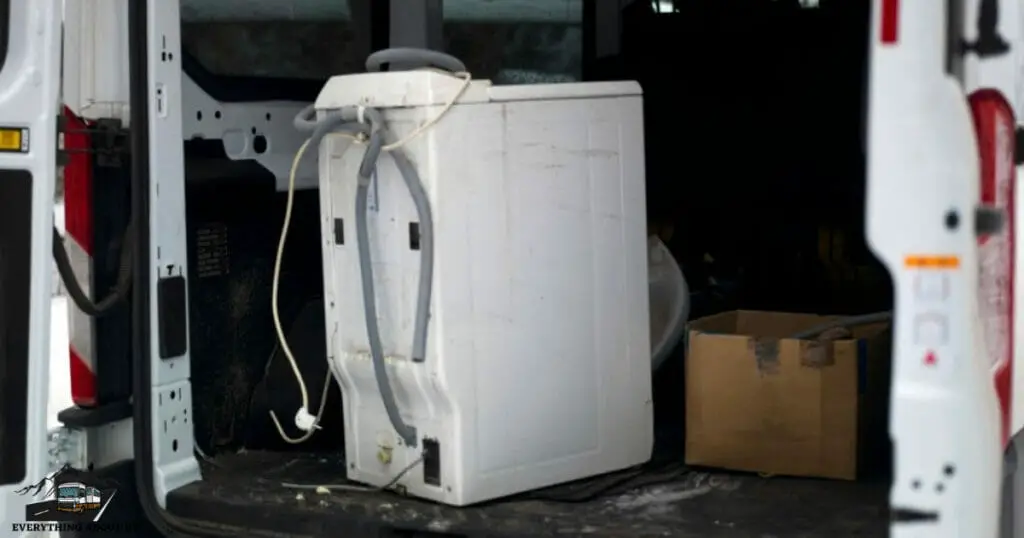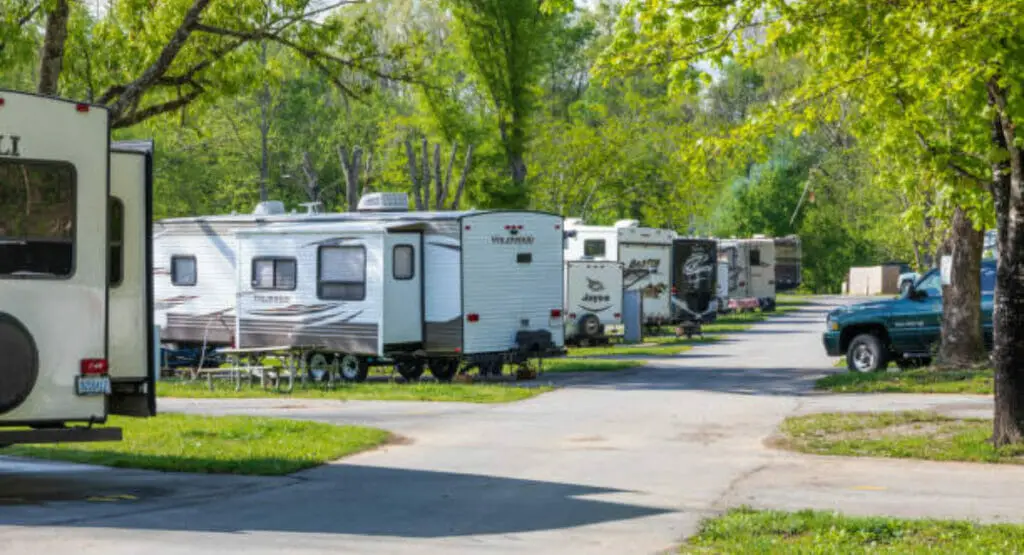Winter has arrived, and RV owners should begin thinking about winterizing their vehicles. One of the most critical components of RV winterization is ensuring that the batteries are properly maintained throughout storage. Failure to manage your RV batteries over the winter months can cause damage or even full failure, which can be expensive to replace. In this piece, we’ll talk about whether or not you should remove your RV batteries for winter storage, as well as how to keep them charged and properly maintained during the winter. By following these guidelines, you can ensure that your RV batteries are in good working order when it comes time to hit the road again in the spring.
I. Can RV Batteries Freeze in Winter?
As the temperature drops during the winter, it’s critical to understand how the cold weather will affect your RV batteries. Cold conditions can cause the electrolyte solution in lead-acid batteries to freeze, causing the batteries to be damaged or destroyed. Furthermore, high temperatures can cause batteries to discharge faster than usual, limiting their lifespan even further.
It is not advisable to leave your RV batteries in frigid conditions since it might cause irreversible harm to the batteries.
Consider the following measures to keep your batteries from freezing during winter storage:
1. Keep your RV in a climate-controlled location, such as a heated garage or storage facility.
2. If a climate-controlled storage facility is not accessible, remove the batteries from the RV and store them in a non-freezing place, such as a basement or heated storage space.
3. To avoid damage, keep the batteries off the ground and on a non-conductive surface.
4. Try purchasing battery blankets or heaters to keep your batteries warm during the winter.
You can help preserve your RV batteries from freezing temperatures and retain their function during winter storage by adopting these procedures.
II. Should You Remove RV Batteries for Winter?
Whether or not to remove your RV batteries for winter storage is determined by several factors. Consider the following advantages and disadvantages:
Pros:
1. Removing your batteries keeps them from discharging or being harmed by high temperatures.
2. It enables you to maintain or repair the batteries while they are removed from the RV.
3. Removing the batteries can also help you make more space inside your RV.
Cons:
1. Removing and storing batteries takes time and requires extra space.
2. Depending on how your RV is configured, removing the batteries may be difficult or uncomfortable.
3. Before you can use your RV again in the spring, you’ll need to recharge and replace the batteries.
Measures to take if you wish to remove your batteries for winter storage:
1. Switch off your RV’s power, including the battery disconnect switch.
2. Remove any batteries from connected devices, such as solar panels or battery chargers.
3. Unplug the negative (black) cable first, then the positive (red) cable, from each battery.
4. Remove the batteries from the RV with caution, being careful not to damage them or spill any acid.
5. Keep the batteries in a cool, dry place away from moisture and excessive temperatures.
6. To avoid damage, keep the batteries off the ground and on a non-conductive surface.
Methods for storing removed RV batteries:
1. To keep the batteries charged, place them on a battery maintainer or trickle charger.
2. Keep the batteries in a dry place away from severe temperatures and moisture, such as in a garage or basement.
3. Consider purchasing a battery storage container or rack to keep your batteries organized and safe.
You can ensure that your RV batteries are in good condition and ready to use when you take your RV out of storage in the spring by following these instructions and implementing suitable storage precautions.
III. How to Keep RV Batteries Charged During Winter Storage
Keeping your RV batteries charged during winter storage is critical to their longevity and performance. Here are some ideas for keeping your RV batteries charged over the winter:
1. Battery Maintainer/Trickle Charger:
A trickle charger or battery maintainer is a device that provides a low-level charge to your batteries over time. This is an excellent alternative for keeping your batteries charged while they are in storage. These chargers are safe to leave connected to your batteries for lengthy periods without overcharging or harming them.
2. Solar Panels:
Solar panels are another great option for keeping your RV batteries charged during the winter months. They are simple to set up and use, and as long as there is adequate sunlight, they can offer a consistent charge to your batteries.
3. Generator:
If you have a generator, you can use it to charge the batteries in your RV over the winter. If you intend to use your generator for other purposes, such as heating your RV or running appliances, this is a smart alternative.
Recommended charging schedules:

1. Battery Maintainer/Trickle Charger:
These chargers allow you to leave your batteries connected for extended periods without overcharging or harming them. We recommend leaving them connected to your batteries for the duration of your winter storage.
2. Solar Panels:
Because the amount of sunlight available in the winter varies, it is critical to regularly monitor the charge level of your batteries. We recommend checking the charge level of your batteries at least once a month and adjusting the placement or configuration of your solar panels as needed.
3. Generator:
To keep your RV batteries charged, we recommend running your generator for a few hours each week. You should also periodically check the charge level of your batteries and adjust your generator usage accordingly.
By following the recommended charging schedules and using these techniques to maintain your RV batteries charged, you can ensure that your batteries are in good condition and ready to use when you take your RV out of storage in the spring.
IV. Winter RV Battery Maintenance Tips
Frequent maintenance is critical to ensuring that your RV batteries are in good working order when you take your RV out of storage in the spring. Here are some ideas for winter RV battery maintenance:
1. Check Battery Charge Level:
Monitor your battery charge level regularly, and recharge the batteries as needed using the methods outlined in the previous section. This will assist in preventing deep discharge and extending the life of your batteries.
2. Clean and inspect the batteries:
Use a battery cleaner and a wire brush to clean the batteries and terminals. Examine the batteries for signs of wear and tear, such as cracks or bulges. Replace the battery as soon as you see any damage.
3. Check Water Levels:
If you have flooded lead-acid batteries, make sure to check the water levels regularly and add distilled water as needed. This will help to guarantee that the batteries work properly and protect them from harm caused by low water levels.
4. Keep Batteries Warm:
Extreme cold temperatures can damage batteries, so it’s important to keep them as warm as possible. To keep your batteries warm during the cold, use a battery blanket or insulation.
Measures to follow when undertaking winter maintenance:
1. Use Protective Gear:
It is critical to wear gloves, eye protection, and other protective clothing when dealing with batteries to avoid injury.
2. Work in a Well-Ventilated Area:
Batteries emit hydrogen gas, which can be hazardous in confined spaces. When performing battery maintenance, always operate in a well-ventilated environment.
3. Keep Batteries Dry:
Water and moisture can damage batteries, so it’s important to keep them dry when performing maintenance. After cleaning the batteries and terminals, wipe them off with a clean, dry towel.
You can ensure that your RV batteries are in good condition and ready to use when you take your RV out of storage in the spring by following these winter RV battery maintenance guidelines and taking the necessary safeguards.
Conclusion
Finally, correctly storing your RV batteries during the winter is critical for ensuring their longevity and function. Cold conditions can damage RV batteries, so take care to avoid freezing. Depending on your tastes and circumstances, you can either remove your batteries for winter storage or keep them in your RV.
Keeping your batteries charged during winter storage is critical to their longevity and performance. To keep your batteries charged, use a battery maintainer, solar panels, or a generator, and stick to the suggested charging schedules. Frequent maintenance is also necessary to ensure that your RV batteries are in good working order when you take your RV out of storage in the spring.
Regularly check the battery charge level, clean and inspect the batteries, check the water levels, and keep the batteries warm. By following these guidelines, you can ensure that your RV batteries are in good working order and ready to use when you pull your RV out of storage in the spring. Correct RV battery storage during the winter will save you money on battery replacements and keep your RV ready for your next excursion.



